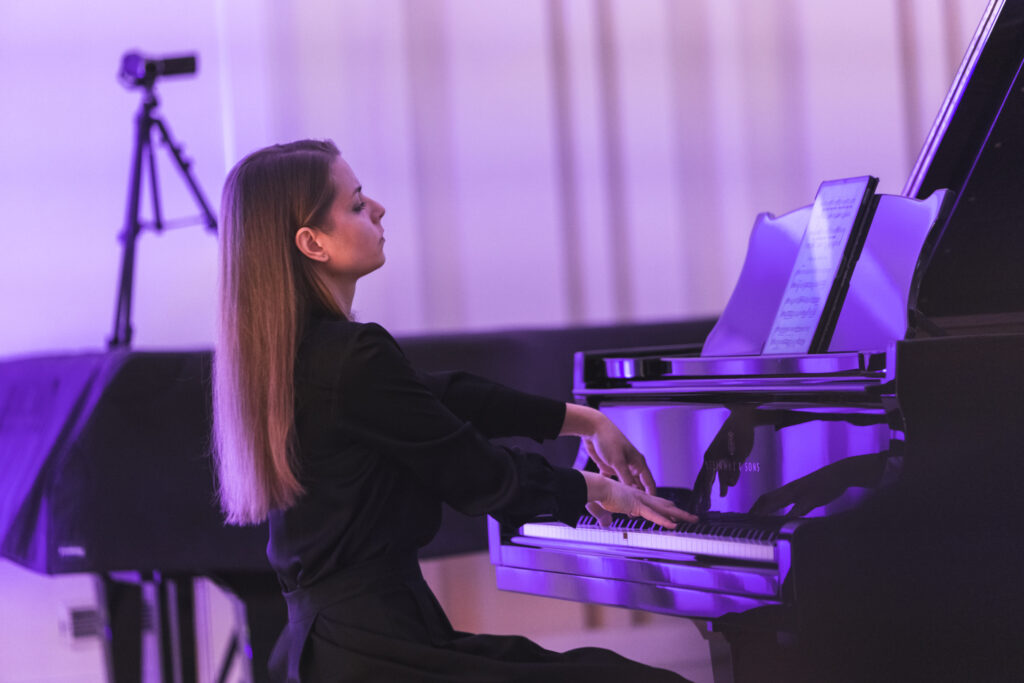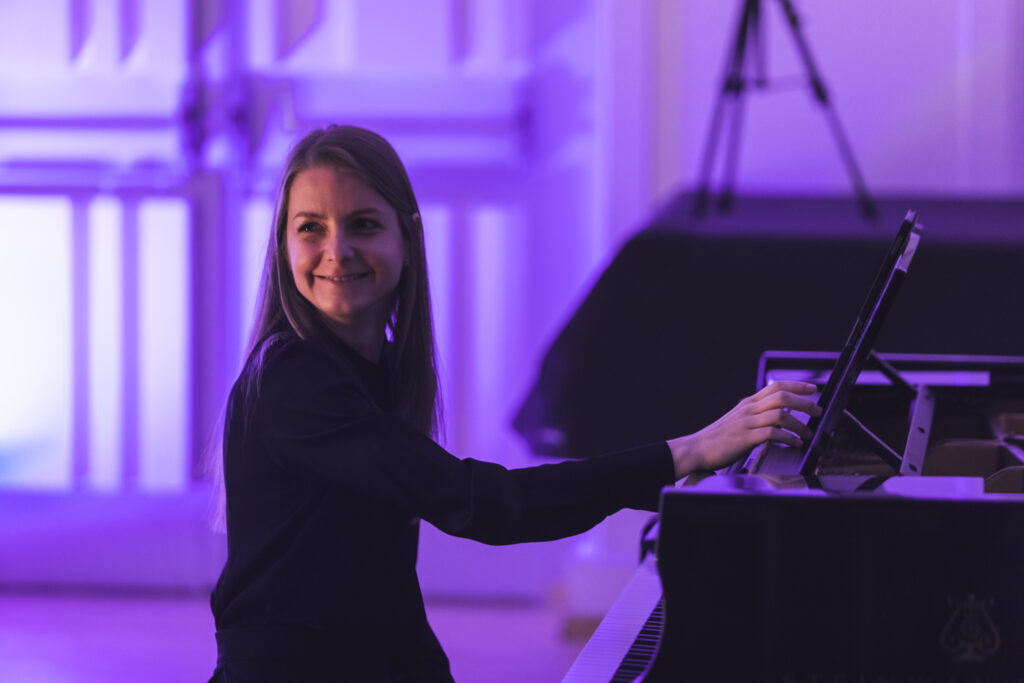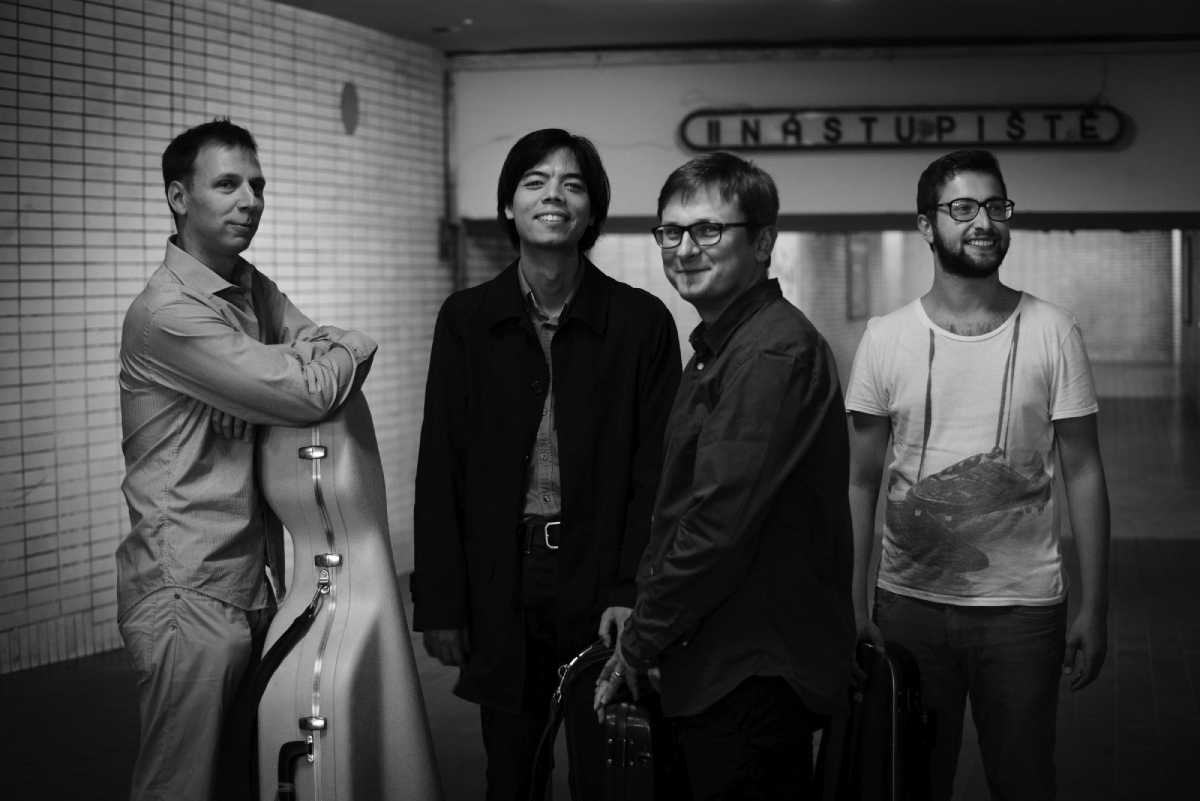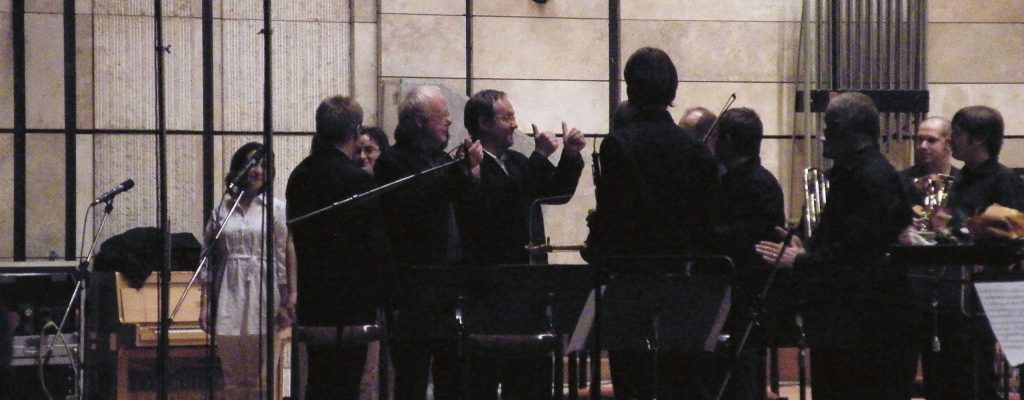22 May 2025 – BRATISLAVA, Concert Hall Dvorana
The Orpheus Hommage à Bokes concert took place as part of the 24th Orpheus Student Festival of Contemporary Music dedicated to the composer Vladimír Bokes. The unique cycle of Preludes and Fugues for piano Op. 53 by this composer was performed, characterised by its technical complexity and strong ideological rootedness in the context of 20th century Slovak music. The work could be interpreted by none other than Katarína Paľová, a pianist known precisely for her orientation towards the music of the past and contemporary centuries.
The cycle of Preludes and Fugues was created between 1984 and 1989 as a result of the author’s long-term effort to combine tradition with contemporary musical language. Bokes was inspired by Bach’s conception, but brought it into the 20th century with typically dense texture, contrapuntal work and expressive tension. The compositions blend rigorous structure with dramatic melodic and dynamic swings. The twelve preludes and fugues carry a variety of expressive positions, from lyrical meditation, to expressive tension, to grotesque moments. Some of the preludes draw on jazz or archaic modal inspiration, while others reflect specific historical events or feelings from the social climate of the normalization period. The pianist manages to capture not only the complexity but also the emotional layer of Bokes’ music.
Katarína Paľová demonstrated her bravura technique combined with clear articulation. She built the dynamic waves thoughtfully, handled the jumps to the extreme positions of the piano with confidence, and delivered the affect with great power. In the dense texture and fast tempi, the performer played with details that did not escape even the most inattentive listeners. Each of the fugues carried clearly legible thematic work even in the chaos of rhythmic and harmonic complexity. A particularly powerful moment came with Fugue No. 3, carrying a plaintive charge that was sure to move the listeners in the audience. Conversely, Prelude No. 4 captivated with a contrastingly relaxing jazz atmosphere. The big emotional climax came with Prelude No. 9, a reaction to the police crackdown on student demonstrators in Prague. The composer tried to express his grief, anger and helplessness in the face of the crackdown; thanks to Katarina Paľová we could recall, or at least partly relive, this disagreement with the regime.

The artistic experience was multiplied by the pianist’s ability to hold the audience’s attention throughout the cycle. Her playing was not only interpretively precise, but also extremely communicative. The expressive range she covered, from intimately quiet passages to dramatically tense climaxes, was delivered with absolute control. The variety of character of the individual preludes and fugues sounded natural thanks to her delivery, which testifies to her deep understanding of the text and the composer’s vision. Moreover, despite the complexity of the pieces, her interpretation remained accessible to listeners less versed in contemporary music – Paľová understood what she was playing and was able to translate it clearly. At the same time, she showed not only the virtuosic side of her art, but also the humility with which she approaches the interpretation of difficult and often underappreciated repertoire.
The concert was enriched by a documentary about Bokes’ life, his compositional journey during the times of normalization and his efforts to push his music despite censorship. A post-concert discussion with former pupils of the composer brought his pedagogical influence and generational legacy into focus. Although the atmosphere of the concert was intimate, the audience was mostly made up of well-known pianists, former pupils and colleagues of Vladimír Bokes, it made the whole evening all the more intimate. “We have to try very hard and risk our own existence in order to take the development of this Slovak music one step further. I tried my best to help it somehow, I did the most I could,” said Vladimír Bokes at the end of the documentary. This idea and not being afraid to speak up, to compose and to move forward should become the message of our time, because our culture needs it more than ever.
Hana CHLEBÁKOVÁ




